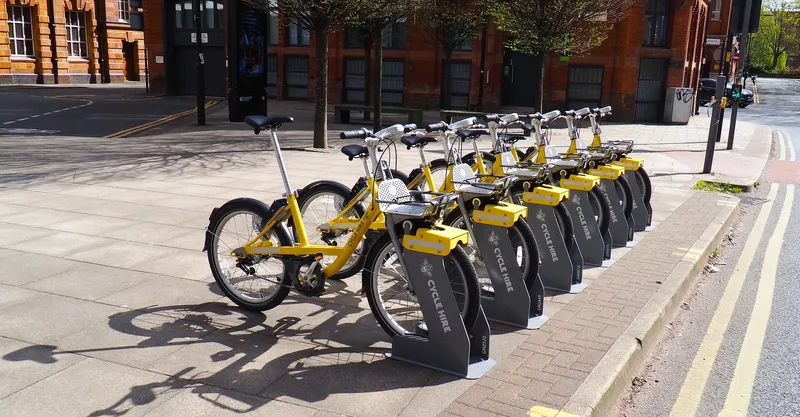
The UK region of Greater Manchester’s plans to create a new integrated transport network have moved a step closer to reality with the approval of a £14 million funding package.
The funding will go towards creating necessary infrastructure behind the planned Bee Network, Greater Manchester’s vision for an integrated, London-style transport system that will stitch together buses, trains, trams, cycling and walking.
The bee has long been a symbol of the city and its shared Bee Bikes are already available.
The Greater Manchester Combined Authority (GMCA) agreed in late January to approve the £14 million, which will come from a variety of national and local sources. It will be used to develop bus, cycling and walking routes.
The package is just a small part of a huge funding initiative for the Greater Manchester area that will include more than £1 billion from the UK Government’s City Regional Sustainable Transport Settlement (CRSTS).
Part of CRSTS involves new bus corridors, cycling and walking routes, alongside improved transport infrastructure and connectivity for towns and high streets.
The latest tranche of funding for the Manchester conurbation agreed in January will include money for a new bus programme to improve pinch points on main bus routes, as well as funding to build new walking and cycling networks in Oldham and Wigan.
Easing the pinch points aims to enhance passenger journey times, journey time reliability and accessibility through a mixture of delivering low-cost interventions and providing existing maintenance, including:
• providing improved passenger waiting facilities and raised kerbs for level boarding and alighting at bus stops;
• improving access to real-time information at key points on the network;
• and enhancing intelligent traffic solutions to provide optimised signals, monitoring and improved information for bus and wider public transport customers.
“Momentum continues to build behind delivery of the Bee Network - the integrated, affordable and accessible public transport and active travel network for our city-region, said Vernon Everitt, transport commissioner for Greater Manchester.
“These schemes will provide much-needed improvements such as dealing with pinch points on main bus routes experiencing delays or poor journey time reliability, improved passenger waiting facilities, raised kerbs for better access at bus stops and better real-time customer information.”






